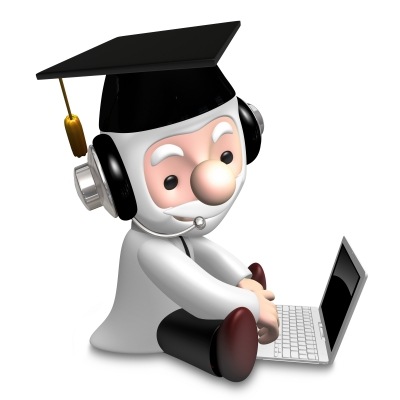How our transcriptionists use the internet for research

I asked my transcriptionists how they used the internet for research and to give some brief feedback on what they found useful. Here are their responses:
My most valuable research tools are Google and http://www.dictionary.com. Google Maps is also a very useful tool when trying to come upon the spelling or location of areas I am unfamiliar with. 
I find Google and Wikipedia really helpful when it comes to researching. These cover every single topic imaginable, including medical terms etc.
When typing up strict verbatim I often use a good site that I came across to help with the spellings of some of the expressive interjections that people tend to use in speech:http://www.vidarholen.net/contents/interjections/. I’ve also typed up a lot of foreign affairs transcripts in my time and Wikipedia and Investopedia are a God send and my go to sites in these instances. I bookmark any site I come across of particular use so that’s it’s always quickly within reach.
Generally I just do the usual Google searches for place names, etc, and use Google maps for names of places. Sometimes, to get the full address, I use the online Post Office Postcode Finder, and either use the road name or postcode, and this will then give you the full and correct postal address. With regard to dictionary, I just go online and do a search for Oxford dictionary, or similar, to find out how to spell a word. For people’s names I just again do a Google search, type in the name and LinkedIn is very handy sometimes to help find a person’s name and to see how it is spelt correctly.
Being able to research online is essential in my job as a transcriptionist and I rely heavily on search engines for anything from finding medical terminology, geographical locations, historical names and generally helping me to source all manner of subjects that I don’t have an in depth knowledge of. The best medical dictionary that I have found as medical terminology is often the hardest to know or find ishttp://www.medilexicon.com With online research I’m able to locate the correct name of, word or phrase regarding any topic in order to complete my work to a good standard which would otherwise be incredibly difficult or impossible.
Originally I used online research to pick the right company to work for, by viewing all the different transcription companies. I’ve also found free downloadable software that enables me to transcribe all types of audio files, the best one being http://www.fortherecord.com which includes use of a foot pedal with excellent sound quality.
Online research is an ongoing daily process for me and essential to my work.
On-line information sourcing is a great tool, however I think it’s imperative to use a reliable source and to cross reference because the information provided on-line is only as good as the person/company who provides it.
A lot of my research online usually pertains to the correct way of typing a word or a phrase or a title etcetera. There are so many grammar rules – and being a perfectionist, I like to get it right. Below are a couple of sites I frequently use:
A comprehensive guide to composition and grammar written by Richard Nordquist, who is Professor Emeritus of Rhetoric and English at Armstrong Atlantic State University.
http://grammar.quickanddirtytips.com/
Mignon Fogarty’s Guide to Common Spelling, Grammar and Syntax Questions.
http://www.merriam-webster.com/
A very useful online dictionary that includes small articles on various issues in grammar and spelling.
I don’t use particular web sites and I don’t use Google very much, but I tend use DuckDuck (UK search engine), as I prefer the privacy. Google tends to track everything you do, whereas DuckDuck doesn’t.
If I’m looking up spellings I tend to just type in my guessed spelling, which will usually comes up with the correct spelling of it. It’s, obviously, a little trickier with specific names, but I put the name of person and the company name, or something like that, and will often get the correct person that way.
If I’m looking up medical terms and drugs, etc, I tend to type in the company, or trial name that’s being talked about and manage to find the correct spellings that way.
Again, when I did the tape about the Commonwealth, I just typed in, say, the date of a particular Commonwealth visit and name of country or name of Head of State and manage to find what I was looking for that way.
Lastly, my opinion: I think Google and other search engines are an excellent research tool and I don’t know how we ever survived without it. The internet is useful for nearly everything, as people have said above, finding lost family, finding useful information (Wikipedia is amazing), the internet is a brilliant resource for children’s homework and study, Google maps for directions, social media, the list is endless. It’s quite funny because in a lot of conversations today, if somebody doesn’t know the answer to a question, whatever it may be, somebody will say “Google it!” A very interesting blog topic.
Catherine Bennett
